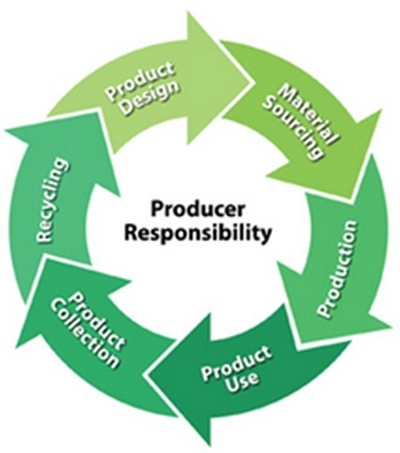EPR Bill Could be Model for Other States
Date: January 27, 2021
Source: News Room

Two new recently drafted New York State recycling bills, if enacted, could set a conspicuous precedent for other states. State Senator Todd Kaminsky and Assemblyman Steve Englebright from Long Island said the bills would set up a "polluter pays" model that would require producers of plastic, cardboard, and paper packaging to help cover the costs of municipal recycling programs. Both bills State Senate Bill S7718, and Assembly Bill A09790 would also mandate post-consumer content in new packaging.
The approach, known as extended producer responsibility (EPR), is meant to help cash-strapped municipalities to deal with evolving recycling markets. It is modeled on recycling laws in Canada and elsewhere that shift at least a portion of recycling costs away from local governments, much the way producers of tires, electronics, batteries, and paint already do in New York and in many other states. The difference is that in focusing on paper, plastics, metal and glass, anything to do with packaging, would target more than half the waste stream.
Funds could lead to upgrades at MRFs and other recycling infrastructure. It also provides incentives for consumer brand owners to use more recyclable materials and reduce their packaging overall. A national trend could be emerging as other states including California, Indiana, Massachusetts, Maine, and Oregon are considering similar bills and appear eager to be part of the conversation.
"We are facing a recycling crisis in our country, and it is essential for government to step up to the plate, mitigate waste and save taxpayer money - and that is precisely what my extended producer responsibility legislation will do," Kaminsky said.
While the legislation has been in the works for over a year, the COVID-19 pandemic seems to have added grist to the mill. Packaging waste has spiked, especially from single-use plastics like face shields, takeout food containers, bubble wrap for online orders, and plastic bags from grocery deliveries. However, the market for this material is non-existent especially with an abundance of cheap oil and gas that translates into cheap virgin plastic prices. Municipalities are left holding the bag for the entire additional expense.
Policymakers and others are realizing that fixing recycling over the longer term requires much more investment and new approaches, including incentives to manufactures to redesign products and packaging, to use less and incorporate more recyclable content. Ultimately, it comes down to profit margins versus the good of the planet, the climate and some of the poorest communities in the world.
See also: Extended Producer Responsibility back on the Radar (https://www.wasteinfo.com/news/wbj20201207A.htm).
Sign up to receive our free Weekly News Bulletin